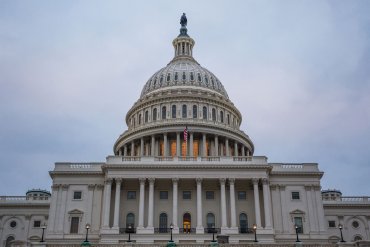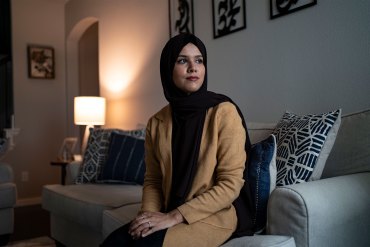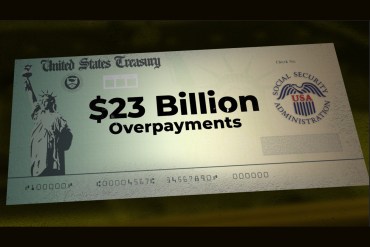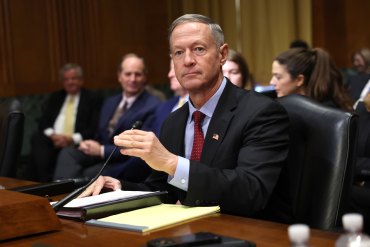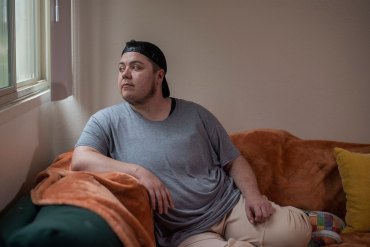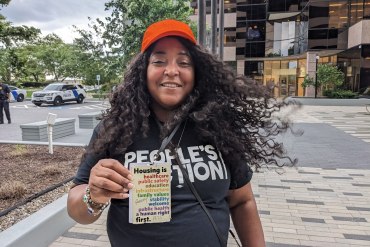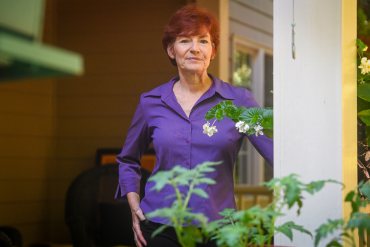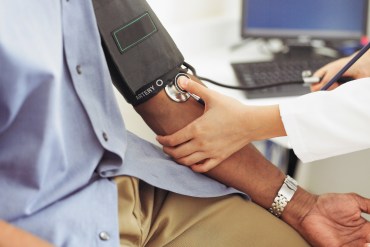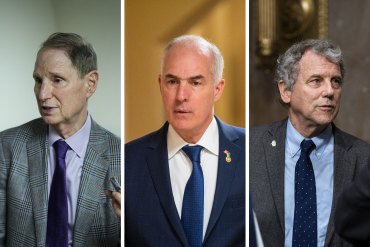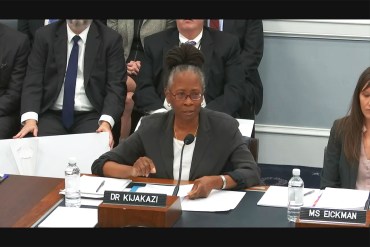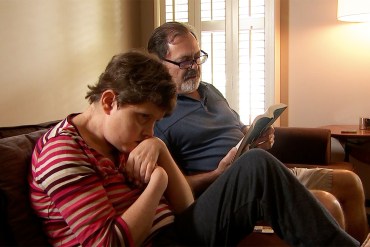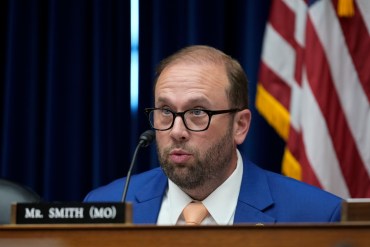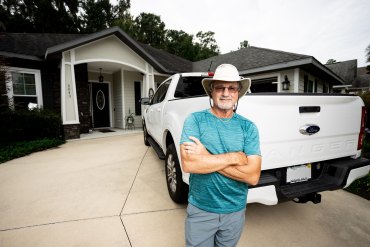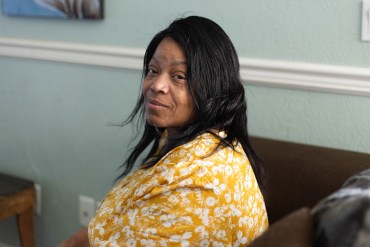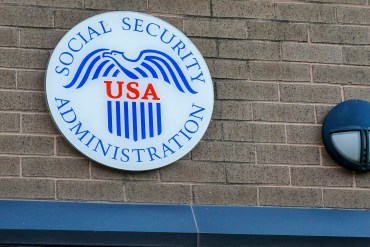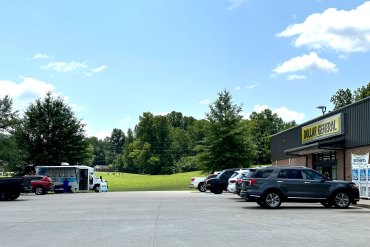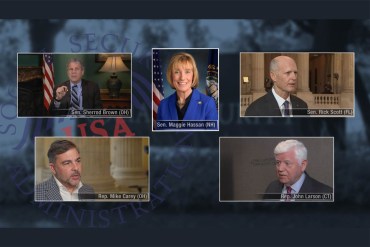‘Forever Chemicals’ Found in Freshwater Fish, Yet Most States Don’t Warn Residents
At least 17 states have issued PFAS-related fish consumption advisories, KFF Health News found. But with no federal guidance, what is considered safe to eat varies significantly among states, most of which provide no regulation.
In Congress, Calls Mount for Social Security to Address Clawbacks
In the wake of a KFF Health News-Cox Media Group investigation, U.S. lawmakers are asking what Social Security will do about its demands on their constituents to repay money already distributed — and sometimes in error. Sen. Rick Scott called the agency’s actions “unacceptable.”
Out for Blood? For Routine Lab Work, the Hospital Billed Her $2,400
Convenient as it may be, beware of getting your blood drawn at a hospital. The cost could be much higher than at an independent lab, and your insurance might not cover it all.
New Social Security Report Shows Growing Overpayment Problem Tops $23B
Social Security has been overpaying recipients for years, then demanding the money back, leaving people with bills for up to tens of thousands of dollars or more.
Biden Pick to Lead Social Security Pledges Action on ‘Heartbreaking’ Clawbacks
At a Senate confirmation hearing, former Maryland Gov. Martin O’Malley said he would address hardships the Social Security agency has caused by demanding money back from beneficiaries.
Medical Debt Is Disappearing From Americans’ Credit Reports, Lifting Scores
As credit rating agencies have removed small unpaid medical bills from consumer credit, scores have gone up, a new study finds.
Gubernatorial Candidates Quarrel Over Glory for Winning Opioid Settlements
Some gubernatorial candidates are sparring over bragging rights for their state’s share of $50 billion in opioid settlement funds. Many of the candidates are attorneys general who pursued the lawsuits that produced the payouts.
When That Supposedly Free Annual Physical Generates a Bill
Completing a routine depression screening questionnaire during an annual checkup is cost-free under federal law. But, as one woman discovered, answering a doctor’s follow-up questions might not be.
Smaller Employers Weigh a Big-Company Fix for Scarce Primary Care: Their Own Clinics
Company health clinics are most common at large workplaces, but some small employers say they see advantages, too: healthier workers, lower costs, and better access to primary care.
Using Opioid Settlement Cash for Police Gear Like Squad Cars and Scanners Sparks Debate
State and local governments will receive a windfall of more than $50 billion over 18 years from settlements with companies that made, sold, or distributed opioid painkillers. Using the funds for law enforcement has triggered important questions about what the money was meant for.
Senators Demand Answers From Social Security on Clawbacks Tied to Covid Relief
Covid relief payments weren’t supposed to cost people their Social Security benefits, but some recipients say they did. Senators want to know why.
Under Fire, Social Security Chief Vows ‘Top-to-Bottom’ Review of Payment Clawbacks
Acting Commissioner Kilolo Kijakazi was pressed by a House Ways and Means subcommittee to explain why so many poor, disabled, or retired people are suddenly hit with demands that can reach tens of thousands of dollars or more.
Covid Relief Payments Triggered Feds to Demand Money Back From Social Security Recipients
Some Social Security beneficiaries say the government is clawing back benefits after they received covid stimulus payments that were supposed to be exempt from asset limits.
House Panel to Hold Hearing on Erroneous Social Security Payments
Congress is beginning to take action on the Social Security Administration’s clawbacks of payments it mistakenly made to poor, retired, and disabled Americans.
Thousands Got Exactech Knee or Hip Replacements. Then, Patients Say, the Parts Began to Fail.
In a torrent of lawsuits, patients accuse Florida device maker Exactech of hiding knee and hip implant defects for years. The company denies the allegations.
‘I’m So Burned Out’: Fighting to See a Specialist Amplified Pain for Riverside County Woman
Teresa Johnson has been in extreme pain for more than a year after what she believes was a severe allergic reaction to iodine. Her Medi-Cal plan approved her referral to a specialist, but it took her numerous phone calls, multiple complaints, and several months to book an appointment.
Social Security Chief Orders Broad Review of Benefit Overpayments
In the wake of an investigation by KFF Health News and Cox Media Group, the SSA acting commissioner said a special team will review “overpayment policies and procedures” and report directly back to her.
What Mobile Clinics in Dollar General Parking Lots Say About Health Care in Rural America
Dollar General’s pilot mobile clinic program has been touted by company officials, rural health experts, and analysts as a model that could help solve rural America’s primary care shortage. But its Tennessee launch has been met with local skepticism.
She Received Chemo in Two States. Why Did It Cost So Much More in Alaska?
A breast cancer patient who received similar treatments in two states saw significant differences in cost, illuminating how care in remote areas can come with a stiffer price tag.
Social Security Overpayments Draw Scrutiny and Outrage From Members of Congress
Lawmakers are faulting the Social Security Administration for issuing billions of dollars of payments that beneficiaries weren’t entitled to receive — and then demanding the money back — in the wake of an investigation by KFF Health News and Cox Media Group.




